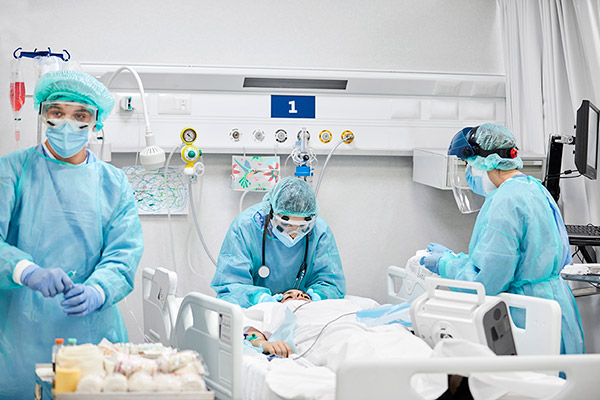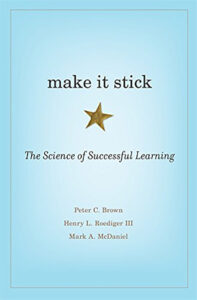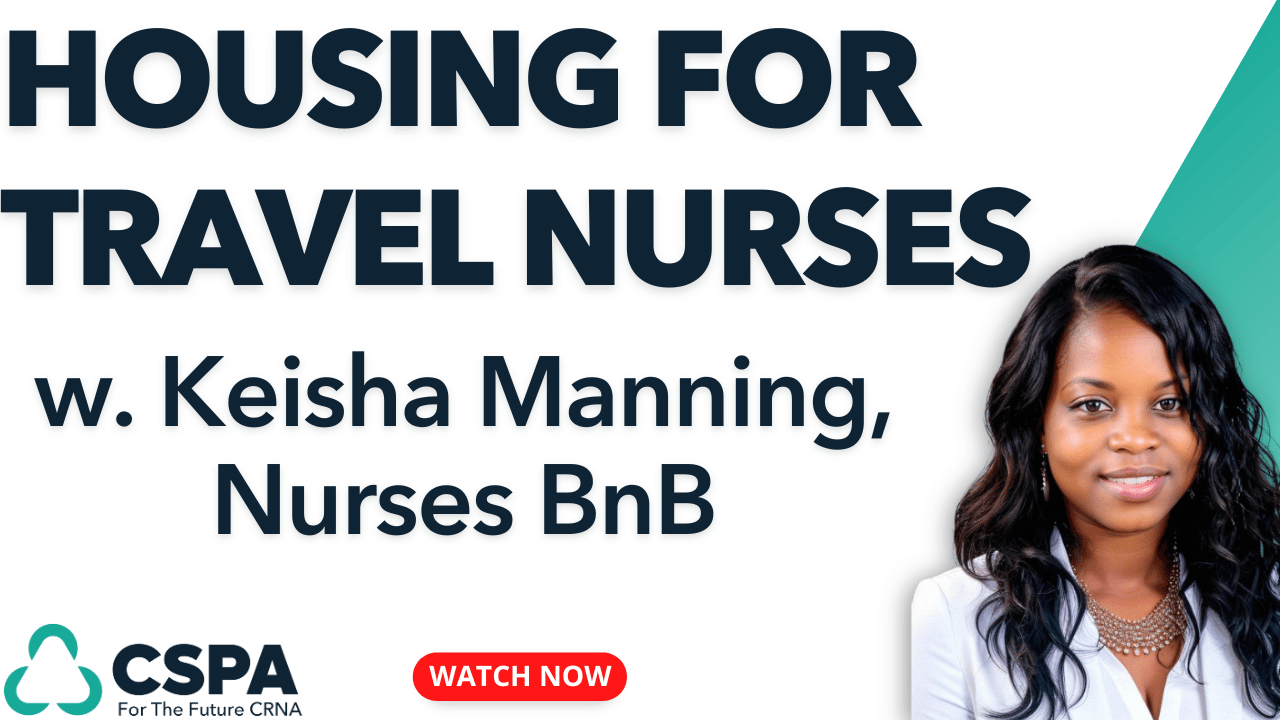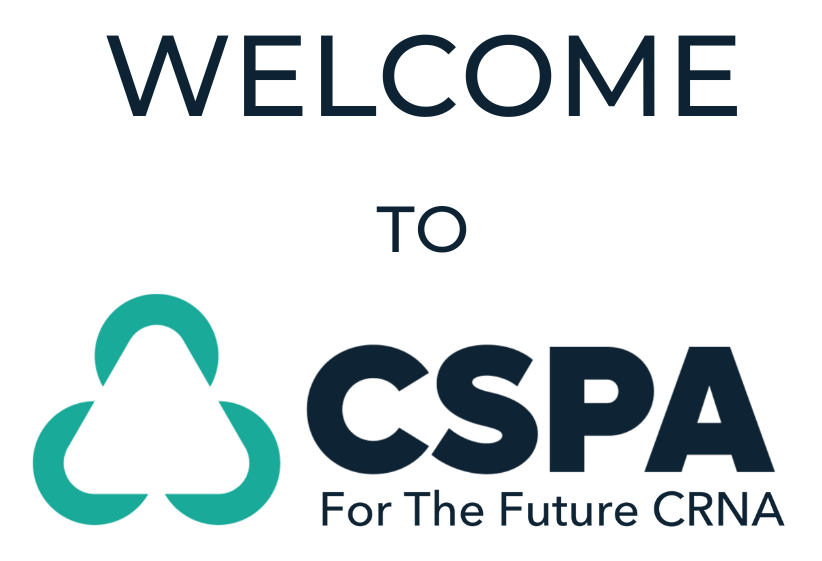
Get Your Free CRNA School Interview Prep Guide
Free CRNA School Interview Prep Guide Click Here
We’re back with today’s guest host, David Warren, a Nurse Anesthesia Resident, to share his insights on what he wishes he had known before starting CRNA schooling in a didactic version. David provides four important points you might need when preparing for CRNA school. He also shares tips to navigate through your CRNA journey. So for those looking forward to starting CRNA school, this episode is for you! Tune in with David today!
Thousands of nurses have gained CRNA school acceptance with CRNA School Prep Academy. Join today for access to all of the tools proven to accelerate your CRNA success! Click here:
https://crnaschoolprepacademy.com/join
Join the CSPA email list: https://www.cspaedu.com/podcast-email
Join the Free Facebook Community here! https://www.facebook.com/groups/crnaschoolprepacademyfree
Book a mock interview, resume or personal statement critique, transcript review and more: www.teachrn.com
—
Watch the episode here
Listen to the podcast here
What I Wish I Had Known – Didactic By Guest Host David Warren
In this episode, we are talking about what I wish I had known prior to starting my CRNA schooling, the didactic version. I also have a clinical version. For those of you who are new here, thank you so much for joining and reading. For repeat visitors, welcome back. Thank you also for being here. For those of you who don’t know me as a CRNA School Prep Academy guest host, my background is in emergency medicine as a nurse practitioner for about eight years.
I am in a front-loaded DNAP program out on the West Coast. I am starting my second clinical rotation so I finished all the didactic components. I did that for about fifteen months out on the West Coast. Since then, I’ve started my clinical journey. I’m in my second clinical rotation. All of my didactic content was presented upfront so I learned everything CRNA textbook related in the first fifteen months.
I had all of my exams and learned everything across the lifespan. I’m putting that into practice in my clinical rotations. There are some programs that are integrated, meaning you do some didactic and clinical at the same time. There are some programs that say they’re front-loaded. You take all of your didactic components upfront to learn about the textbook anesthesia stuff and then when you’re in clinical, there are still some didactic classes that you have to take that are anesthesia-related.
To clarify that, my program was fully front-loaded, meaning I did all of the textbook anesthesia content upfront. I don’t have any didactic stuff left. In addition to my clinical course, we are also doing a DNAP course and some APEX board review stuff. All of the material that we are reviewing in APEX, we’ve already learned. It’s a review. I want to make that distinction.
This is what I wish I had known prior to starting CRNA schooling on day one. I have four points for you here. My first point is probably the most important. They’re not ranked in order of importance but this first point is probably the most important point that I wish I had known. That is prior to CRNA school, I wish I had developed good study habits. I’ll tell you what I mean by that.
My background is in emergency medicine as a nurse practitioner, which looks wildly different than most anybody else applying to CRNA school. There are probably a few other people who have that background as a nurse practitioner in some area but it’s a rare occurrence. It’s not a norm. I have a Master’s degree as a nurse practitioner. I’ve taken graduate-level courses but I still wish I had developed better study habits prior to starting CRNA school.
Develop Good Study Habits
I’ll give you my story, what I did and how I wish it had been better for me. When I started CRNA school, I didn’t fully know what I was getting myself into. I don’t think anybody does. You can sit here and read this all day long. You can read forums and blogs. People can tell you but until you experience that yourself, you truly don’t know what you’re getting yourself into and what the level of detail will be until you reach that point. You’re then like, “Everybody has this come-home moment. This is what everybody was talking about.” I had that realization as well.
When I started CRNA school, I thought I had good study habits and I was good to go. When CRNA school hit, it’s truly like all the amount of material that you could ever imagine coming at you at one time. I’m a family nurse practitioner and an acute care nurse practitioner. I was in a dual combined program. Even compared to that, the material was still very intense. That’s not to negate that the nurse practitioner curriculums are not as intense because I felt that was intense as well. However, from a different perspective, the anesthesia content was much more intense and in-depth.
I wish I had developed good study habits prior to entering that phase of the program, the didactic phase. I wish I had sorted out and known what works for me and what doesn’t work for me. I will tell you the hard way what doesn’t work for me. It doesn’t work for me to sit there, listen to lectures, and read over notes over and over again. That doesn’t work for me and I knew that part going in.
When I was in nursing school and my NP program, what did work for me was making flashcards. I would write things on flashcards and study that way. I would handwrite everything out. I quickly learned that in CRNA school, that works a little bit but it doesn’t work fully. That is because you truly don’t have the time to write out everything you need on a note card and do that for every class you have. You would spend all of your time preparing to study and none of your time studying. That’s the scenario that I ran into.
I would spend so much time preparing to study. I would review my notes and make my note cards. By the time I was ready to start learning the material, the test was already the next day. That didn’t work so I knew in month one that I have got to find something different. I wish I had taken that step months before I entered CRNA school or months before I even applied to CRNA school. It would have been handy to know what works for me and what doesn’t work for me.
You need to be asking yourself that as well. If you’ve gotten into CRNA school and you’re getting ready to start, put this at the very top of your list. What works for you and what doesn’t work for you as far as studying? That’s a question that only you can answer. There are some people in my program who read their notes and don’t do anything else. They read over and over and they ace the test. That doesn’t work for me for whatever reason. My brain’s not built that way. I can read something over and over but reading something doesn’t cut it for me. I wish I had known that going in.
I learned the hard way. I would make these note cards and realize, “I’m out of time. I don’t know what to do.” There’s a book that I want you to go read that changed my life and changed the way I study, especially for anesthesia school. The book is called Make It Stick: The Science of Successful Learning. I would encourage you to go download and read that book. It goes into evidence-based learning processes. It’s very interesting.
It clicked for me because we use evidence-based practice as clinicians in every facet of our clinical lives. We use evidence-based practice to help take care of patients and in anesthesia. I use evidence-based practice in emergency medicine. Some of you are probably on committees that deal with evidence-based practice. This book goes into the evidence of learning and what works and what doesn’t work. It’s super interesting.
I’m not going to spoil the whole book for you but the main point of the book is that active recall is the best way for you to retain information. That is backed by science and evidence. If you don’t know what active recall is, you should go down a little rabbit hole and look up what active recall is. I’ll give you the short version here. Active recall is when you are able to do just that. You are able to actively recall what you have learned. It goes far beyond reading notes and saying, “I need to know X, Y, and Z. I got to know this drug and these side effects.” It goes far beyond that.
The best way that I found for me to do this was to read over my notes. I would make open-ended practice questions about whatever was on that PowerPoint slide. I would recite those questions to myself and read those questions over and over until I could answer those questions without looking at my notes. It would be multiple open-ended questions about whatever was on that PowerPoint, note slide, or whatever it was that I was trying to study. I would make open-ended questions so that I would have to dig that information out of my brain and actively recall what I had learned. That changed the game for me.
I plan to do an episode on how I studied in CRNA school so I’m not going to give you all the details on that. There’s much more detail that I want to go into but that’s the basis of what my first point is. Know your study habits and read the book, Make It Stick. Preferably, do it before you start CRNA school because you will learn the evidence of successful learning.
It’s super interesting to read evidence-based practice when it comes to learning. I encourage you to do that. If you’re applying to CRNA school, take a deep dive into what it means for you to study, how you retain content, and the best ways for you to go about doing that. That’s my first point of what I wish I had known. I wish I had developed good study habits prior to entering CRNA school.
If you're applying to CRNA school, take a deep dive on what it means for you to study and how you retain content and the best ways for you to go about doing that. Share on XLet’s go onto my second point. These are all over the board. They’re not in any particular order and they don’t go together. We’re going to be jumping all over the board here. Point number two is to know your expenses. I’m a planner. I felt like I had everything planned out and ready to go before I started CRNA school but little did I know, there were things that I wish I had known. One of those things was expenses.
Know Your Expenses
I am originally from Texas. I moved states away to the West Coast to attend CRNA school. As you can imagine or surmise, probably some of you who are reading, there are going to be expenses associated with your CRNA school journey like there are with anyone. You need to know what those expenses are, especially in the day and age where we apply to CRNA school and sometimes, we’re waiting up to a year before we start the program. Use whatever amount of time you have or even use the time before you apply to CRNA school to practice your budget. Know what your expenses are going to be.
If you’re moving states away to Oregon, Washington, Massachusetts, or wherever you’re moving to, know what those expenses will be. Know what your actual expenses are for moving, driving to the place, catching the plane, or whatever you’re going to do. Know what your housing situation is going to be. Are you going to be living with somebody? Are you going to be living alone? Are you going to be eating out a lot? Are you going to be cooking?
Know what your expenses are. The best way to do that is to try it. Practice it while you’re out of school. That’s something I wish I had done because I didn’t do that. I knew what my expenses would be but I overestimated and underestimated some things. I feel like I came to a relatively good conclusion but I probably undershot things a little bit because I didn’t implement my budget before starting CRNA school.
That’s something I wish I would’ve done. I wish I had lived like I was going to be in school for if not a year, maybe a few months, 5 or 6 months, and get that budget down to know what my expenses are going to be. Those are your monthly expenses. Are you paying for health insurance, life insurance, dental insurance, or car payment? There are all these things that add up.
When you’re working, it’s not that big of a deal because you’ve got a stream of income coming in. When you’re not working, that adds up quickly, especially if you haven’t allotted the time or the resources for that. The biggest thing you can do, apart from knowing your study habits, is to know your expenses and where you want to go to school. This can change. If you’re applying to multiple different schools across different states, it’s going to change a little bit.
That’s ultimately going to change depending on where you go for CRNA schooling. If you know where you’re going to go to school and what area you’re going to be in, try to, as much as you can, research that and budget for those expenses and things that you’re going to be having to take care of while you’re in school. This point was more geared towards life and the things that come with life, not necessarily the school expenses. That’s a whole other topic.
For school expenses, while we’re here, we’ll touch on that as well, know your tuition. How are you going to pay for your tuition? Are you taking loans out like Grad PLUS loans or private loans? What’s your plan for paying for school? If you’re thinking, “I’m going to worry about that whenever I get accepted,” don’t do that. Take the step. Find out what your expenses are going to be and how you’re going to budget for them.
What loans do you plan to take? Research the interest rates on those loans. Are you taking government loans? If so, those interest rates are fixed. Are you going to be taking private money from a family member? That’s probably not the best idea but are you going to be borrowing that money and then planning to pay it back? Is somebody paying your way through CRNA school? If that’s the case, that’s probably not a huge deal for you but you should think about those school-related expenses as well.
I’ll give you an example from my program. We had to purchase a Butterfly ultrasound machine prior to starting the program or right when we started the program. It was around $3,000. It was for us to take home and use. We had assignments with it to visualize anatomy for ultrasound-guided regional anesthesia, doing a fast exam, or doing a bedside cardiac exam. It was all of those things. That was a huge expense. $3,000 is a lot of money. It may not be that much money if you’re working and you’ve got thousands of dollars coming in every month but if you’re not working and you’re in school, that’s a big expense.
Find out from your school. It’s a good thing to ask in your interview, “What expenses are there in addition to tuition that I would be responsible for?” I’ll give you some more examples. We have to buy APEX Anesthesia, which is a board review program. We have to buy Prodigy Anesthesia, which is another board review program. Those are several hundred dollars each. These expenses keep stacking on and adding up. That’s part of it. During your interview, you need to ask some of those questions like, “What other expenses am I going to be responsible for in addition to tuition?”
This is more geared towards didactic but the school as a whole, find out clinical-wise if you are going to be doing rotations in different states. Are you going to be staying in the same area? Is housing provided for you? Do you have to find your housing? It is all of those things that you don’t think about until the time comes. That’s why I’m telling you here. Think about these things before the time rolls around because you’ll be glad you did. Overall, big-picture, know your expenses.
Also, have a reserve fund. Even if it’s a few thousand dollars or several hundred dollars, have some reserve fund in case something goes wrong. Your car breaks down and you need a new tire or a new battery. Whatever it is, have some reserve funds set aside. If something does go wrong, not necessarily with your car but with anything, like a family member dies and you have to catch a flight back home the next day, you have something set aside. You have a little bit of extra money on hand. That’s something that is worthwhile to think about, especially before you start your CRNA school journey.
Know Your Peers And Faculty
The third point is to know your peers and faculty. What I mean by that is since everything’s doctoral, you’re going to be spending three years if not more with the people that you’re surrounded with. Those are your peers, colleagues, cohort, and faculty. I will address the faculty first. You can get a good idea of your faculty when you do your interview. The interview is a good time for the faculty to interview you and find out if you’re a good fit for their program. It’s also a good time for you to get in touch with, talk to, and get an idea of the faculty.
The panel people that you’re interviewing with, are they going to be a good fit for you as well? Do they have your back? Are they easy to get along with? Are they difficult personalities? There can be difficult personalities in the anesthesia realm. That’s part of it. Maybe you don’t jive with some of the people in the faculty. The reality is you’re going to be spending three years with these people.
They’re going to be teaching you your anesthesia courses. They’re going to be in your simulation labs. They’re going to be doing your oral boards if you have oral boards, administering your exams, assigning your clinical rotations, and mentoring you during your doctoral work. You need to know, “Are these faculty members a good fit for me?” That’s only something you can answer. People that are a good fit for me may not be a good fit for you.
The interview is a good time for you to know, “Are these faculty members going to have my back? Are they somebody that I can spend three years with and not want to pull my hair out?” You’re not going to get a great sense of that in the interview but at least you’re talking. You are having a conversation with people. You can get a general sense of the faculty and if that’s something you can deal with or not.
Whenever you’re accepted and whenever you start CRNA school, be cordial. Don’t do anything crazy to your detriment as far as your relationships with your faculty. Don’t badmouth your faculty on social media. If they find out about it, it spirals downhill from there. These are things that are like, “I wouldn’t do that,” but you’d be surprised. Have a good relationship with your faculty because they’re there to help you.
You also are going to have to spend three years with them so find out in your interview if you can, “Are they somebody that I can jive with?” If you do decide, “I can live with these people. I want to go to CRNA school. I’m in CRNA school. I’m going to accept the offer,” whenever you do accept your offer, know when you start to have a good relationship with your faculty. They accepted you because they believe in you. They think that you can succeed in their program.
Have a good relationship with your faculty because they're there to help you. You will spend three years with them. Share on XKeep that dynamic alive because you don’t want to put that dynamic in a weird way. You don’t want to say or do things that would jeopardize your relationship with your faculty members. Whenever they accept you into their program, they see you as somebody who can be successful. Don’t prove them wrong. You want to have that good relationship with your faculty members because you’re going to be with them for three years.
This is something that’s hard to do initially when you’re applying to CRNA school. You don’t get to know somebody by a fifteen-minute interview. You can get to know a little bit but you can’t know a whole lot. Whenever you do accept that offer of admission, know there are probably going to be people that you don’t like as faculty in your program.
There are some people that you don’t get along with and that’s fine but do your best to get along with those people. It’s going to be the same in the workplace when you go to clinical or you have preceptors. When you’re a CRNA, there are going to be people you don’t like working with. That’s part of the reality of life. There are people that you don’t jive with but you have to have that professional relationship. You have to treat them with respect and dignity like they will for you.
The other part of that is to know your peers. This is hard to do because it’s not something you can do prior to CRNA school. Other students are interviewing for those slots like you are. Whenever that cohort is set, that class is set. You’re going to start with these people no matter if you like them or not. Get off on a good foot with your peers or other cohort members in your CRNA schooling. Don’t be the loner who stays home and never does anything. Get to know your peers. You’ll get to know them certainly from school but get to know them in more of a social setting as well. Go out. Have fun. Take a day off.
Get to know these people because you are going to be spending three years alongside these people. Especially whenever you start in the clinical setting, you’re relying on each other. I’ll give you an example. In my clinical setting, there’s another student there. I was pulling meds for my case. We were going down the hall back to my room. I go and did my case and finish up the case. I’m taking my patient to PACU and the student was like, “Do you want me to grab your meds for the next case for you?” I was like, “Sure. That would be amazing. Grab the meds. I’ll meet you there. Finish getting set up.”
Having that good relationship with somebody that you know and trust helps a lot. People are going to help you whenever you’re in the clinical setting. They’re going to go pull meds for you and get your room set up for you if you’re slammed busy so know your peers as well. Treat them with respect. You have more of a chance to get to know your faculty during your interview to know, “Is this going to work or not?” Whenever you are accepted, you accept your offer of admission and you start your program, get to know your peers as well because you’re spending three years with them. Get off on a good foot and make it work because you’re going to be stuck with them for three years as well.
I said the number one point was most important. Developing study habits is very important. However, the last point here is probably just as important and that is to take time for yourself. I’m speaking from 100% experience here. It’s easy to get into CRNA school and get slammed with everything that’s going on. In my didactic phase, I was studying at least 7 to 10 hours per day on average.
Sometimes, I would review on Saturday or Sunday for a few hours but usually, I would take Saturday and Sunday off. Sometimes, I would take a day off in the week. For the most part, I was studying 7 to 10 hours a day and hammering it out. That’s normal for any CRNA student. Ask any of them. That’s the norm and that’s what happens. However, you need to take time for yourself.
Take Time For Yourself
This was hard for me because I would just go. If it needs to get done, I’ll do it. I’ll stay up until midnight or 1:00 in the morning studying. I almost burned myself out. That’s not healthy. You should not be studying 12 hours a day, 7 days a week. Take it from me. Don’t. Whenever you’re getting tired, you’re not retaining information. You get frustrated and keep trying. It’s not going to work. Take some time for yourself. Be generous, gracious, and merciful to yourself because you’re going to need it.
It’s very challenging to try to manage the workload but you also have to have some semblance of a normal life. You have to eat and drink. You have to spend some time with other people apart from your textbooks. That’s part of life. You have to be willing to take time for yourself. That looks different for everybody. Maybe you want to go read a book.
I will give you this caveat. You can’t take time for yourself with something that takes 3, 4, or 5 hours a day. You don’t have that kind of time. You can’t go play a round of golf every single day. That’s not going to work. Can you go to the coffee shop, sit, have a cup of coffee, and read a book for an hour? Yes. That’s reasonable. Can you binge-watch some TV? That’s also reasonable. Can you go on a weekend trip? That’s also reasonable.
You have to be reasonable about this. If you have exams coming up, maybe it’s not the best time to take all these breaks. Maybe you need to hammer it out for three days. After your exam, take 2 or 3 days off. That’s also very reasonable. You have to find what works for you but I repeat, you have to take time for yourself. If you don’t, you will burn out. You will be in a much worse position than you were to start with.

CRNA School: You have to find what works for you. You should take time for yourself because if you don’t, you will burn out and be in a much worse position than you were to start with.
Take time for yourself, even if it’s with a loved one, your wife, your boyfriend, your girlfriend, your sibling, or whoever it is. It could be a friend. Take some time for yourself because you need a break as well. Even if you did poorly on an exam or you’re so far behind, take some time. That’s because when you take some, you refresh and recharge. You’re going to be feeling ready to go much more so than if you studied twelve hours straight and you’re not retaining anything. I hope that makes sense. That’s my soapbox.
What I wish I had known prior to CRNA school in the didactic portion, 1) Develop good study habits, 2) Know your expenses, 3) Know your peers and faculty, and 4) Take time for yourself. If you are a nurse anesthesia resident, let me know what your tips are. What do you wish you had known prior to starting CRNA school in the didactic phase? If any of you aspiring CRNAs out there have questions, concerns, or anything to ask about our CRNA school journey, I would love to get in touch with you. Thank you so much for reading. I will see you next time.
Important Links
Thousands of nurses have gained CRNA school acceptance with CRNA School Prep Academy. Join today for access to all of the tools proven to accelerate your CRNA success! Click here:
https://crnaschoolprepacademy.com/join
Join the CSPA email list: https://www.cspaedu.com/podcast-email
Join the Free Facebook Community here! https://www.facebook.com/groups/crnaschoolprepacademyfree
Book a mock interview, resume or personal statement critique, transcript review and more: www.teachrn.com










